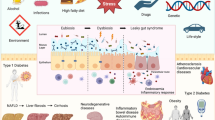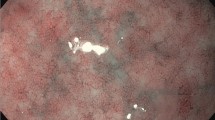Abstract
Gluten-free diet (GFD) is the most effective method to manage celiac disease (CD). Many patients do not reach the complete symptom alleviation, even by strict GFD. Recent studies have reported inconsistent results regarding the beneficial benefits of taking probiotics. Therefore, we aimed to evaluate the effects of probiotics on gastrointestinal (GI) symptoms and the possible underlying causes in CD and celiac disease autoimmunity (CDA) patients. Databases, including PubMed, Scopus, Embase, Web of Science and Google Scholar, were searched for clinical trials published until July 2022 about assessing the effects of probiotics or synbiotics on CD or CDA patients. We collected data on GI symptoms, CD markers, inflammatory and immune responses, adverse events, and gut microbiota. A random effect meta-analysis was used to estimate the pooled standardized mean difference (SMD) and confidence interval (CI). We screened 7234 articles, of which 14 were included in the qualitative analysis and 5 in the quantitative analysis. Probiotics might alleviate GI symptoms, especially in the highly symptomatic patients, and improve immune response in CD and CDA patients. Results of the meta-analysis showed that probiotics increased the abundance of Bifidobacterium (SMD: 0.72, 95%CI (0.13, 1.30) and Lactobacillus (SMD: 0.49, 95%CI (0.18, 0.80) as compared with placebo. Probiotics did not increase the adverse events compared to the placebo. Probiotics might alleviate GI symptoms and immune response and improve dysbiosis in CD and CDA patients. However, high-quality clinical trials are needed to increase the level of evidence. Also, the most suitable combination of probiotics is yet to find.





Similar content being viewed by others
References
Singh P, Arora A, Strand TA, et al. Global prevalence of celiac disease: systematic review and meta-analysis. Clin Gastroenterol Hepatol. 2018;16:823-836.e822. https://doi.org/10.1016/j.cgh.2017.06.037.
Briani C, Samaroo D, Alaedini A. Celiac disease: from gluten to autoimmunity. Autoimmun Rev. 2008;7:644–50. https://doi.org/10.1016/j.autrev.2008.05.006.
Parzanese I, Qehajaj D, Patrinicola F, et al. Celiac disease: from pathophysiology to treatment. World J Gastrointest Pathophysiol. 2017;8:27–38. https://doi.org/10.4291/wjgp.v8.i2.27.
Palmieri O, Castellana S, Bevilacqua A, et al. Adherence to gluten-free diet restores alpha diversity in celiac people but the microbiome composition is different to healthy people. Nutrients. 2022. https://doi.org/10.3390/nu14122452.
Więch P, Chmiel Z, Bazaliński D, et al. The relationship between body composition and a gluten free diet in children with celiac disease. Nutrients. 2018. https://doi.org/10.3390/nu10111817.
Francavilla R, Cristofori F, Vacca M, Barone M, De Angelis M. Advances in understanding the potential therapeutic applications of gut microbiota and probiotic mediated therapies in celiac disease. Expert Rev Gastroenterol Hepatol. 2020;14:323–33. https://doi.org/10.1080/17474124.2020.1745630.
Jedwab CF, Roston BCDMB, Toge ABFDS et al. The role of probiotics in the immune response and intestinal microbiota of children with celiac disease: a systematic review. Rev Paul Pediatr. 2021;40.
Sacchetti L, Nardelli C. Gut microbiome investigation in celiac disease: from methods to its pathogenetic role. Clin Chem Lab Med CCLM. 2020;58:340–9. https://doi.org/10.1515/cclm-2019-0657.
Pecora F, Persico F, Gismondi P, et al. Gut microbiota in celiac disease: is there any role for probiotics? Front Immunol. 2020;11:957.
De Palma G, Nadal I, Medina M, et al. Intestinal dysbiosis and reduced immunoglobulin-coated bacteria associated with coeliac disease in children. BMC Microbiol. 2010;10:1–7.
Conte M, Porpora M, Nigro F, et al. Pro-pre and postbiotic in celiac disease. Appl Sci. 2021. https://doi.org/10.3390/app11178185.
Lindfors K, Blomqvist T, Juuti-Uusitalo K, et al. Live probiotic Bifidobacterium lactis bacteria inhibit the toxic effects induced by wheat gliadin in epithelial cell culture. Clin Exp Immunol. 2008;152:552–8.
Seiler CL, Kiflen M, Stefanolo JP, et al. Probiotics for celiac disease: a systematic review and meta-analysis of randomized controlled trials. Off J Am Coll Gastroenterol ACG. 2020;115:1584–95.
Sterne JAC, Savović J, Page MJ, et al. RoB 2: a revised tool for assessing risk of bias in randomised trials. BMJ. 2019;366:l4898. https://doi.org/10.1136/bmj.l4898.
Harnett J, Myers S P, Rolfe M. Probiotics and the microbiome in celiac disease: a randomised controlled trial. Evid Based Complement Altern Med 2016. 2016.
Pinto-Sánchez MI, Smecuol EC, Temprano MP, et al. Bifidobacterium infantis NLS super strain reduces the expression of α-defensin-5, a marker of innate immunity, in the mucosa of active celiac disease patients. J Clin Gastroenterol. 2017;51:814–7.
Olivares M, Castillejo G, Varea V, Sanz Y. Double-blind, randomised, placebo-controlled intervention trial to evaluate the effects of Bifidobacterium longum CECT 7347 in children with newly diagnosed coeliac disease. Br J Nutr. 2014;112:30–40.
Primec M, Klemenak M, Di Gioia D, et al. Clinical intervention using Bifidobacterium strains in celiac disease children reveals novel microbial modulators of TNF-α and short-chain fatty acids. Clin Nutr. 2019;38:1373–81.
Quagliariello A, Aloisio I, Bozzi Cionci N, et al. Effect of Bifidobacterium breve on the intestinal microbiota of coeliac children on a gluten free diet: a pilot study. Nutrients. 2016;8:660.
Smecuol E, Hwang HJ, Sugai E, et al. Exploratory, randomized, double-blind, placebo-controlled study on the effects of Bifidobacterium infantis natren life start strain super strain in active celiac disease. J Clin Gastroenterol. 2013;47:139–47.
Smecuol E, Constante M, Temprano MP, et al. Effect of Bifidobacterium infantis NLS super strain in symptomatic coeliac disease patients on long-term gluten-free diet–an exploratory study. Benef Microbes. 2020;11:527–34.
Martinello F, Roman CF, Souza PAD. Effects of probiotic intake on intestinal bifidobacteria of celiac patients. Arq Gastroenterol. 2017;54:85–90.
Klemenak M, Dolinšek J, Langerholc T, Di Gioia D, Mičetić-Turk D. Administration of bifidobacterium breve decreases the production of TNF-α in children with celiac disease. Dig Dis Sci. 2015;60:3386–92.
Ali B, Khan AR. Efficacy of probiotics in management of celiac disease. Cureus. 2022;14.
Oscarsson E, Håkansson Å, Andrén Aronsson C, Molin G, Agardh D. Effects of probiotic bacteria Lactobacillaceae on the gut microbiota in children with celiac disease autoimmunity: a placebo-controlled and randomized clinical trial. Front Nutr. 2021;8:354.
Håkansson Å, Andrén Aronsson C, Brundin C, Oscarsson E, Molin G, Agardh D. Effects of Lactobacillus plantarum and Lactobacillus paracasei on the peripheral immune response in children with celiac disease autoimmunity: a randomized, double-blind, placebo-controlled clinical trial. Nutrients. 2019;11:1925.
Demiroren K. Can a synbiotic supplementation contribute to decreasing anti-tissue transglutaminase levels in children with potential celiac disease? Pediatr Gastroenterol Hepatol Nutr. 2020;23:397.
Aldaghi M-A, Dehghani S-M, Haghighat M. Evaluation of the correlation between tTG-IgA titer and duodenal biopsy findings in children with suspected celiac disease. Iran J Pediatr. 2016;26.
Kingstone K, Gillett HR, Johnston SD, Smye M. Lactulose-mannitol intestinal permeability test: a useful screening test for adult coeliac disease/Author’s reply. Ann Clin Biochem. 2001;38:415.
Chibbar R, Dieleman LA. The gut microbiota in celiac disease and probiotics. Nutrients. 2019. https://doi.org/10.3390/nu11102375.
Girbovan A, Sur G, Samasca G, Lupan I. Dysbiosis a risk factor for celiac disease. Med Microbiol Immunol. 2017;206:83–91. https://doi.org/10.1007/s00430-017-0496-z.
Acknowledgements
The authors would like to appreciate the Clinical Research Development Unit of Shahid Rajaei Hospital, Alborz University of Medical Sciences, Karaj, Iran, for their administrative cooperation.
Funding
The authors declare that no funds, grants, or other support were received during the preparation of this manuscript.
Author information
Authors and Affiliations
Contributions
H–S and MQ conceptualized the study. MM and LS developed the search strategy and performed the literature search. MM and NMK extracted the data. NMK performed the meta-analysis. MM, NMK, and H-SE prepared the draft. H-SE and MQ supervised the team. All authors critically revised the manuscript for important intellectual content and gave final approval to publish the version.
Corresponding authors
Ethics declarations
Conflict of interest
The authors have no relevant financial or non-financial interests to disclose.
Ethical considerations
The study protocol was approved by Ethic Committee of Alborz University of Medical Sciences, Karaj, Iran.
Additional information
Publisher's Note
Springer Nature remains neutral with regard to jurisdictional claims in published maps and institutional affiliations.
Rights and permissions
Springer Nature or its licensor (e.g. a society or other partner) holds exclusive rights to this article under a publishing agreement with the author(s) or other rightsholder(s); author self-archiving of the accepted manuscript version of this article is solely governed by the terms of such publishing agreement and applicable law.
About this article
Cite this article
Mozafarybazargany, M., Khonsari, M., Sokoty, L. et al. The effects of probiotics on gastrointestinal symptoms and microbiota in patients with celiac disease: a systematic review and meta-analysis on clinical trials. Clin Exp Med 23, 2773–2788 (2023). https://doi.org/10.1007/s10238-022-00987-x
Received:
Accepted:
Published:
Issue Date:
DOI: https://doi.org/10.1007/s10238-022-00987-x




